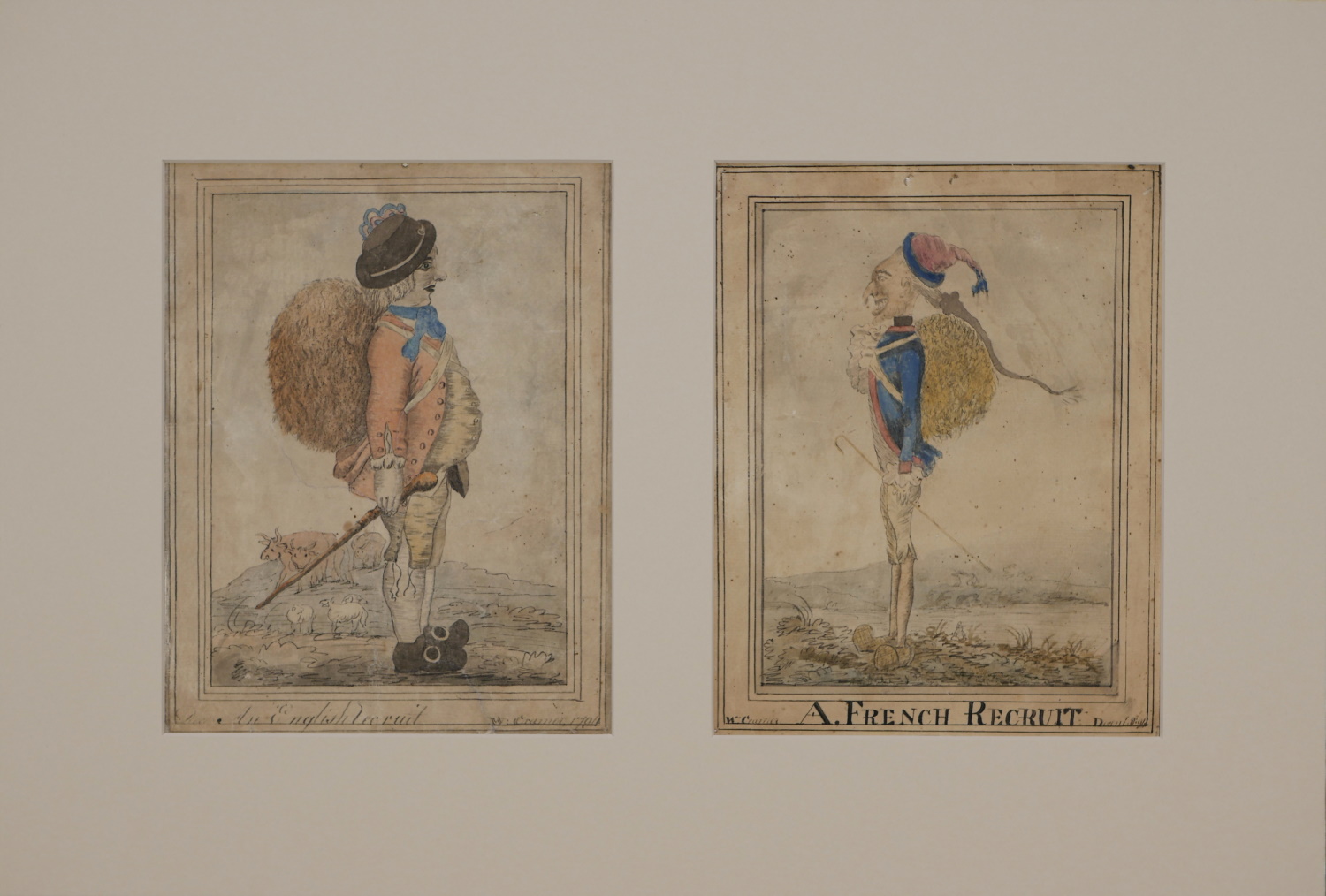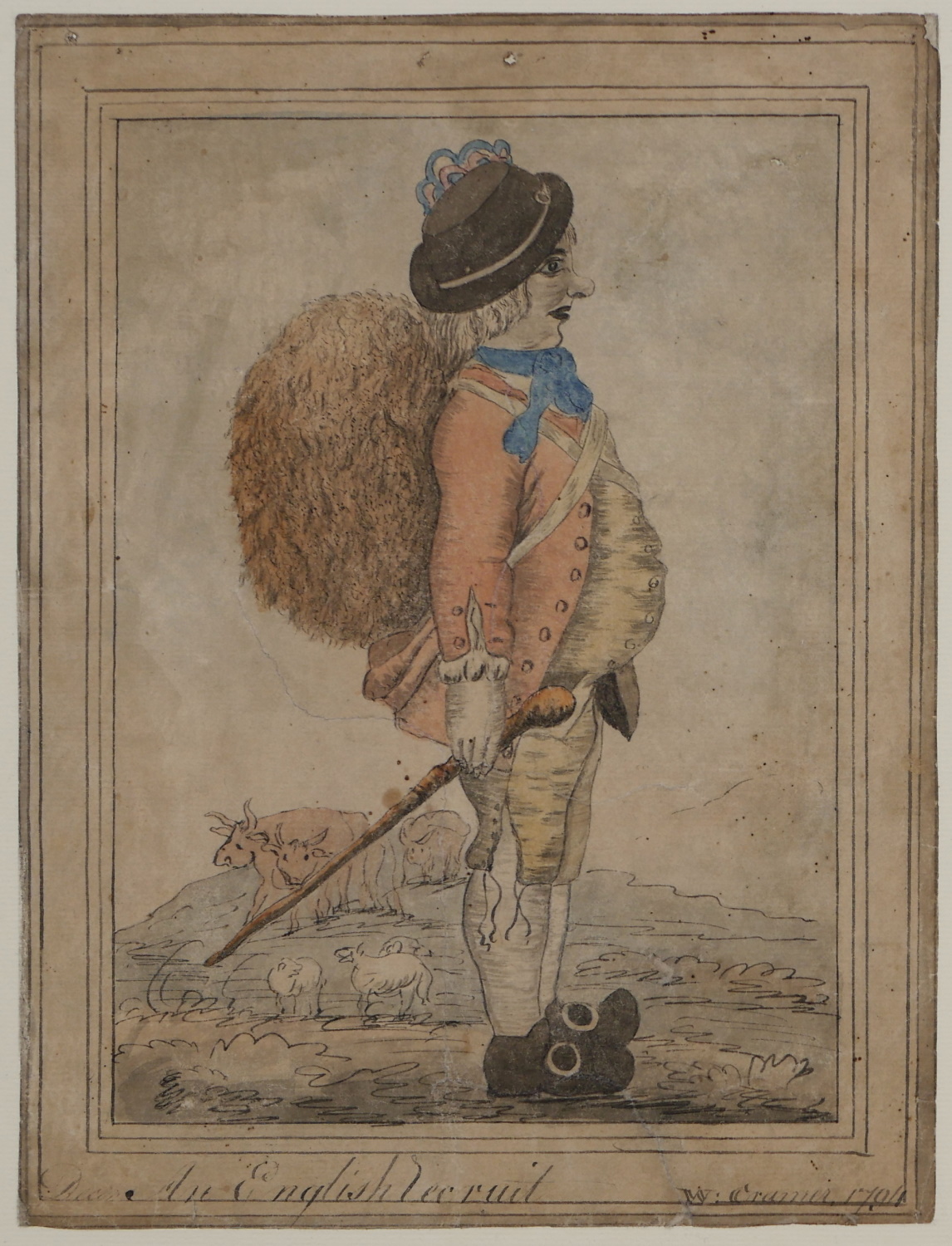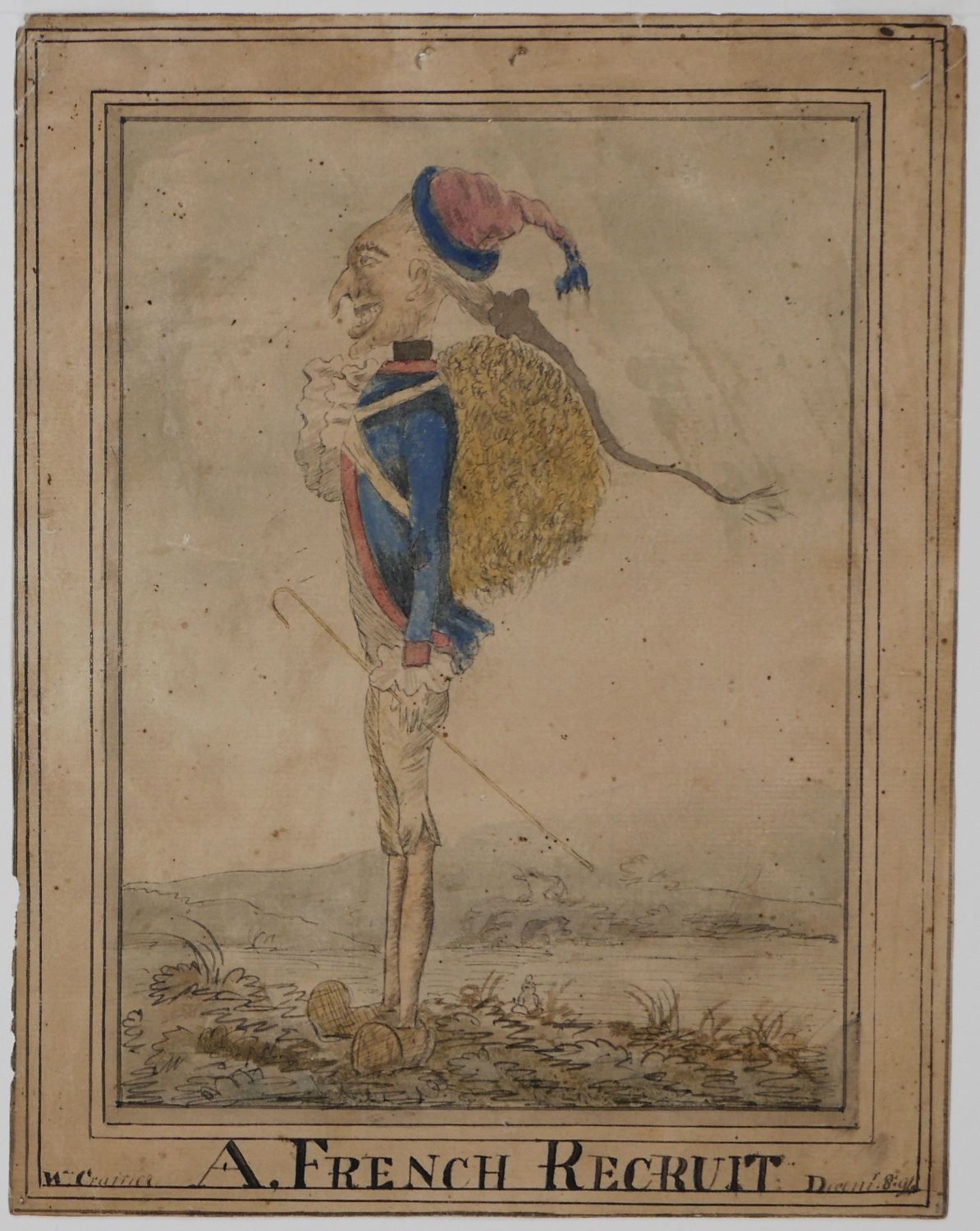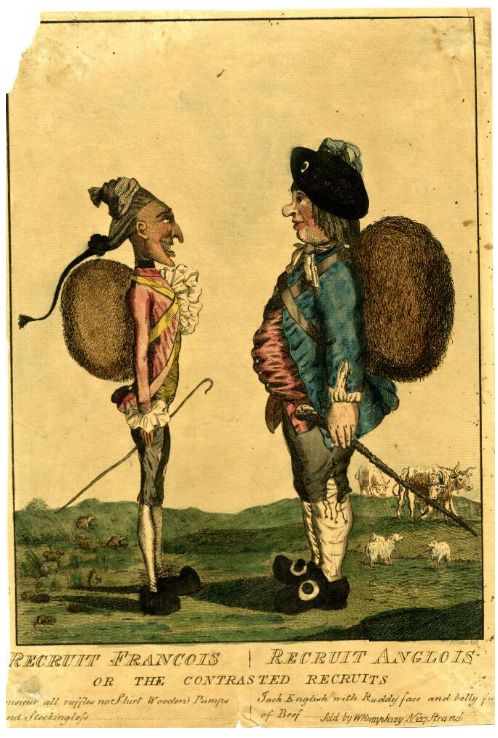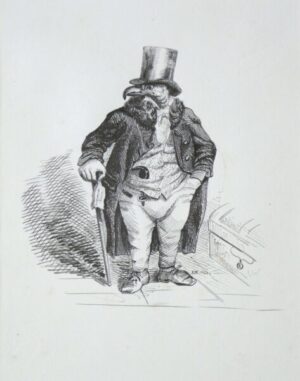Description
The print in the BM has been given a suggested date of c.1781 (this is unlikely) and is thought to be a re-issue of a Colley Plate. Published by William Humphrey, the two figures are represented on a single sheet standing facing each other with the French Recruit on the left. The figures in our drawings appear in reverse, another notable difference is the stretch of water in the background of the French Recruit (not seen in the print), also the lettering is different.
Thomas Colley 1778-1793 (fl.) was a prolific etcher and publisher who held several addresses in London from 1780-83. His last address was at 3 Union Street, Portsmouth 1793. BM.
For the following reasons our research suggests our drawings may have been the original’s used as templates for the print.
When etched onto copper plates the images would appear on the prints in reverse to the original drawings.
In 1794 ‘The Enlistment Act’ (also known as the Emigrant Corps Bill or Act) allowed the British government to create regiments of émigrés from France. This specific legislation was needed to enlist men who were not British subjects in the British Army and to allow George III to commission foreigners as officers. The Act was a major break from the military conventions about enlisting soldiers from other states in the Eighteenth Century. The Act expired with the Peace of Amiens.
Many of those who fled France in the wake of the French Revolution were soldiers and officers of the French Royal Army. With the outbreak of French Revolutionary Wars in 1792 émigré nobles set up units and formed Armèe des émigrés. Soon after the French declaration of war on Britain in February 1793, émigré officers also offered to raise units for the British Army. The British government welcomed the additional manpower.
The first unit to be raised was the Loyal Emigrant Regiment by Louis duc de La Chastre. To avoid political problems, the officers were commissioned by George III as Elector of Hanover and then they were transferred to British pay. This arrangement was not practical for further offers, so new legislation was introduced to allow émigré units to be raised and maintained directly by Britain.
As the French officers of these units were Catholic, they needed exemptions from British laws against Catholics. Also, throughout the Eighteenth Century, many British MPs had been hostile to employing foreign troops within the British Army.
There were significant debates in the House of Commons about the “Bill to enable subjects of France to enlist as Soldiers”. The political arguments focused on two areas. Firstly, there were concerns over the government using foreign troops within the British Isles, which was seen as a threat to British political liberty. Secondly, that by recruiting Frenchmen Britain was changing the nature of the war with France and showing that it wanted to overturn the French Revolutionary government. Charles James Fox, one of the MPs who said most on this, thought that the war would be longer and more violent as a result, and negotiating a peace much harder. Despite these concerns being raised in Parliament, the government had enough of a majority for the bill to pass, although votes were held at each stage.
The bill received Royal Assent: 9 May 1794.

